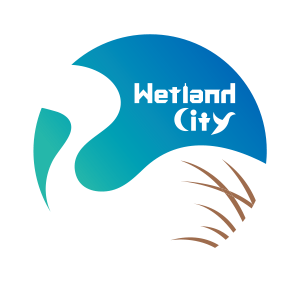
Seogwipo
Home > Seogwipo
Communication, capacity building, education, participation and awareness (CEPA) activities are being implemented in the city. The city actively communicates with the local people to discover the traditional knowledge and cultural heritage of wetlands, and recognize the wetland culture of local residents.
In order to promote the importance and value of wetland conservation in the local community, Seogwipo City has continuously provided SNS education programs for local residents every year. In addition, in order to facilitate the public access to information on wetlands, it created Facebook pages of the Mulyeongari Wetland Center and Ramsar Site Supporters. Moreover, it also created a website in 2019 to facilitate the public access to information about Mulyeongari-oreum to enable local residents to share their activities for conservation and management of wetlands. Local residents have produced and distributed leaflets on introduction to Ramsar Sites (Korean/English) to schools and public offices to advertise and promote activities for the wise use of wetlands, as well as the annual magazine for local residents. In addition, for distribution to schools and libraries, an illustrated plant book was also published, categorizing plants of the City including Mulyeongari-oreum, into ferns, gymnosperms, and angiosperms, and analyzing them by shape, size, and habitat conditions. In 2018, the local management committee signed a wetland value promotion agreement with the Media Jeju, a local media agency, to publicize the values and information of wetlands and to promote the participation of both town and province residents in conservation of wetlands. In order to provide Namwon-eup residents with information on Mulyeongari-oreum, the Namwon-eup Office and the Namwo-Li (village) Office provided information on the habitats of animals and plants of Mulyeongari-oreum and held an event to nominate the representative plants and animals of Mulyeongari-oreum. In 2019, the Mulyeongari wetland publicity booth was set up at the Namwon-eup Gosari Festival, the town’s major festival, to provide residents and tourists with information on the wetlands. Local people introduce local culture, set up exhibits on wetland ecosystem, carry out wetland protection campaigns, and sell and promote local food and products such as bracken, honey and tangerine.
Seogwipo City supports wetland schools and a permanent wetland academy for local residents, and trains wetland interpreters. In 2018, the Namwon-eup local management committee and the Seogwipo City Educational Support Agency signed an agreement to allow students to receive education programs on wetland environment and introduce related career paths.The agency chose Mulyeongari-oreum for the annual professional training for the teachers in 2019 to prepare them for related school programs. Based on this, they are planning to run and promote the field education program on wetlands.
Seogwipo City puts emphasis on raising public awareness on the necessity of wetland conservation, understanding climate change, revitalization of eco-tourism, identifying field sites for wetland education, and branding of local products. A visitor information center and a wetland center at the entrance of the Mulyeongari oreum Trail, providing guided tour and information on the values of wetlands and facilitating public relation activities. Through these activities, Seogwipo City put efforts to raise levels of awareness about the values of wetlands among students, local residents, and tourists.